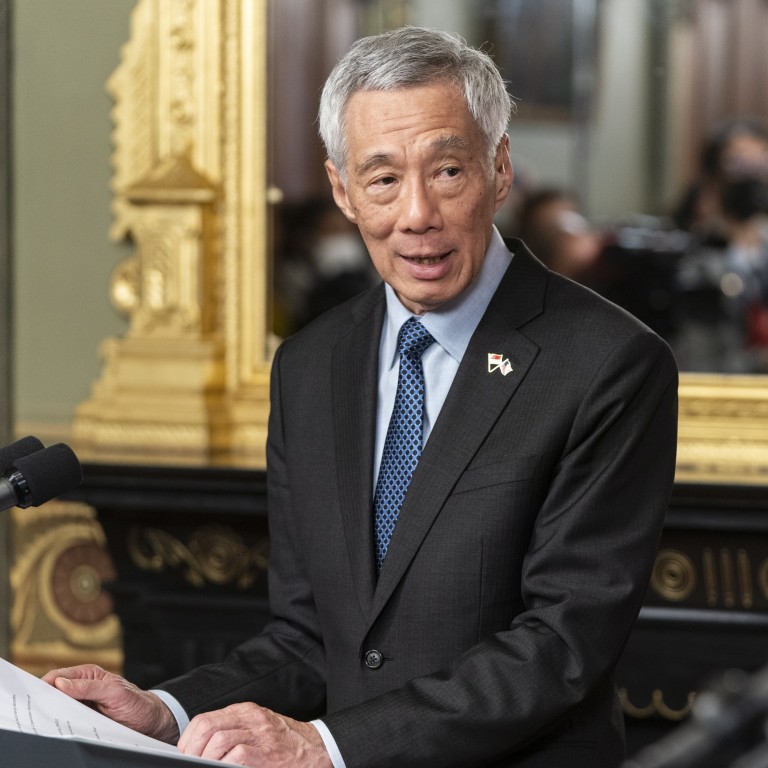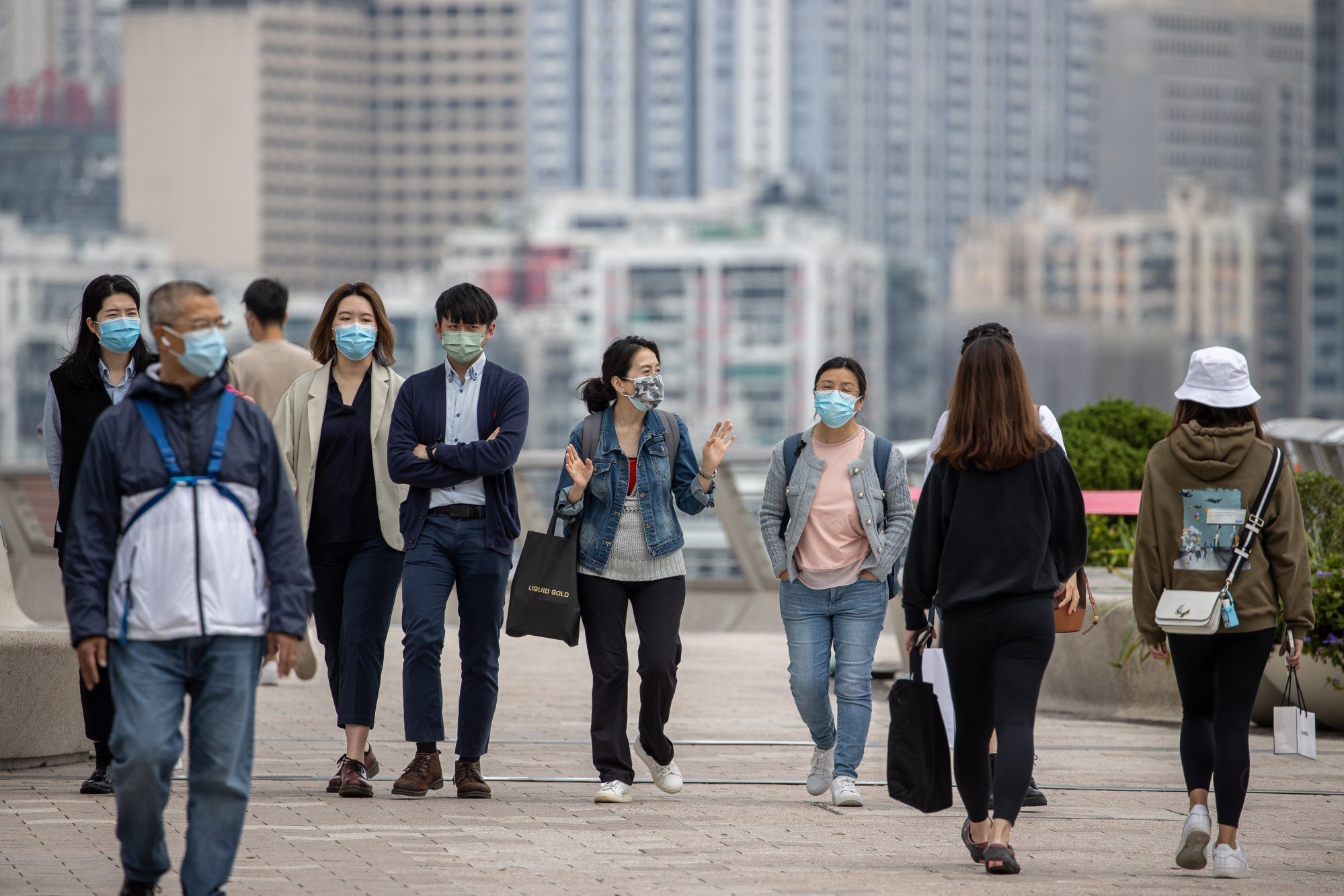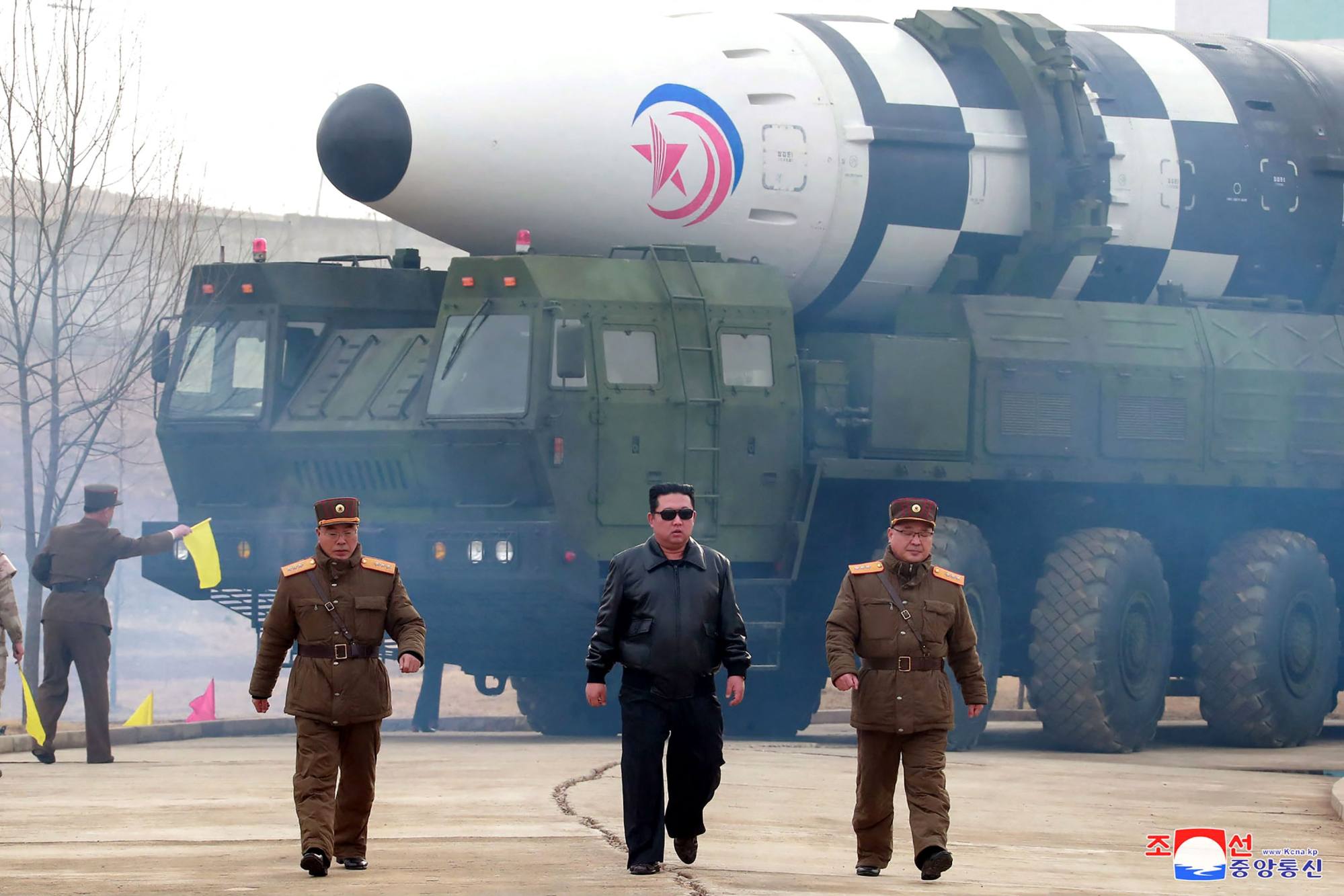
Singapore’s Lee cautions US against ‘everyone but China’ approach in Asia engagement, says ‘more pleased’ if Hong Kong expats stayed put
- In a wide-ranging dialogue, PM Lee Hsien Loong touched upon the Ukraine war’s implications for Asia and the ‘changing climate’ in Hong Kong, among other topics
- He said Singapore welcomed Hong Kong expats but ‘would be more pleased if they were happy to remain’ in the city as it made the region more vibrant and dynamic
Asking Asian countries to reject China’s overtures of cooperation “is not just unrealistic, it is wrong”, Lee said, as he called for Washington to maintain “an overlapping and constructive engagement in the region” as it worked out how to deal with Beijing in a way that did not destabilise the global system.

“Some of them may want to come to Singapore. We are happy to welcome them, but actually we would be more pleased if they were happy to remain in Hong Kong,” he said, in remarks that his office published in English and Chinese on Sunday.
China’s Ukraine stance raises awkward questions on territorial integrity, Singapore PM says
“It is competition for Singapore, but it will make for a vibrant, dynamic region and Singapore belonging to the region will benefit from that.”
This had caused some companies to question their continued presence in the city and whether it would be better to relocate, he said.
I believe Hong Kong can still make a living, and more than make a living, even as the environment gradually changes
“I believe Hong Kong can still make a living, and more than make a living, even as the environment gradually changes,” Lee said.
Sharpened sense of strategic security
Asked by the moderator to elaborate on this point, given that some countries may argue that they needed an “increased deterrent”, Lee said one question to ask was whether all nuclear-weapons armed players understood “the nuances of mutual assured destruction”.

Commenting on US-Singapore cooperation, Lee said that while the city state supported Washington’s participation in the region “that does not mean we fight your wars or that we are expecting you to ride to our rescue should something happen to us”.
“There is a certain flexibility to it, I think it is best to keep it like that, because the countries in the region, we are not lined up eyeball to eyeball. I have my friends, you have your friends, and we both have some friends in common, and we both do business with one another, a lot of business with one another,” he said.
As Singapore’s PM Lee turns 70, no clear successor is in sight
The security architecture that Singapore wanted for the region, he said, included “structures which will bring the region together and make you pause a little bit longer before deciding to go for an extreme solution”.
Lee cautioned against the US defining the conflict in Ukraine as a battle of democracies against autocracies, as this would place China “on the wrong side” which will make ties even more difficult.
“We all have a problem in Ukraine,” he said. “I think if we talk about sovereignty, independence and territorial integrity, a lot of countries can come along. Even China would not object to that, and would actually privately strongly support that.”
Why Singapore PM’s Nehru comment hit a raw nerve in India
Chong Ja Ian, an associate professor of political science at the National University of Singapore, said growing distrust among the political – and increasingly public and business – elites of the US and China laid at the heart of their differences.
Noting that market access to the US was an issue for regional actors looking for alternatives to China, Chong said that as the US and its firms diversify risk and move away from China, they could be encouraged to invest elsewhere in Asia.
“This is already happening to some degree. This will benefit regional economies. At the same time, [China’s] own dual circulation approach to the economy may mean fewer opportunities for the region as well,” Chong said, referring to a strategy Beijing implemented in 2020 aimed at focusing on domestic demand while also tapping into foreign markets.
“The period of growing economic integration and expanding overlap in US and [Chinese] interests of the 1990s and 2000s may well be fading, and regional economies have to find alternative models for economic growth and development – or even accept that the post-World War II and post-Cold War [model of] rapid economic growth may not be replicable in future.”

